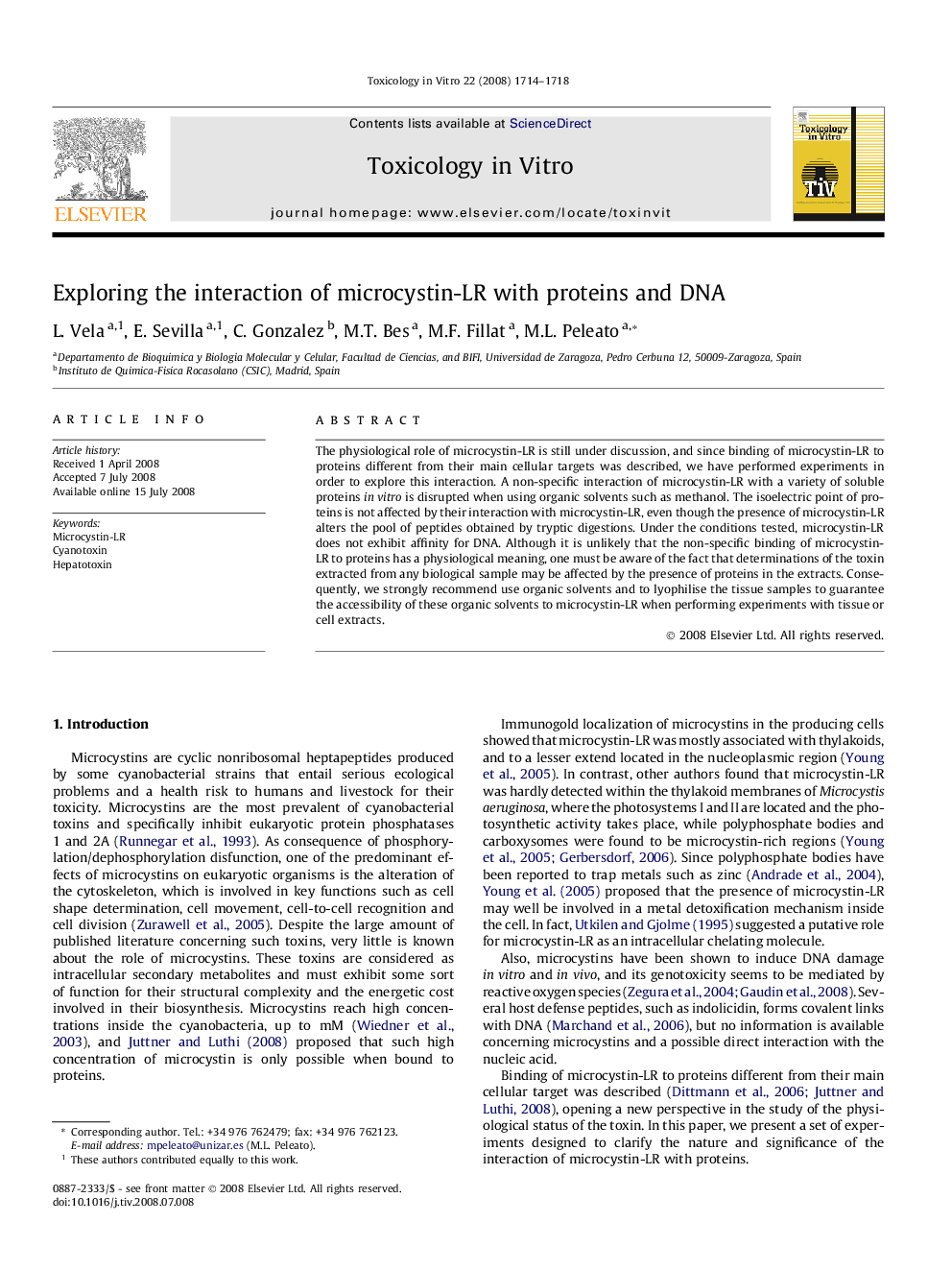| Article ID | Journal | Published Year | Pages | File Type |
|---|---|---|---|---|
| 2603743 | Toxicology in Vitro | 2008 | 5 Pages |
The physiological role of microcystin-LR is still under discussion, and since binding of microcystin-LR to proteins different from their main cellular targets was described, we have performed experiments in order to explore this interaction. A non-specific interaction of microcystin-LR with a variety of soluble proteins in vitro is disrupted when using organic solvents such as methanol. The isoelectric point of proteins is not affected by their interaction with microcystin-LR, even though the presence of microcystin-LR alters the pool of peptides obtained by tryptic digestions. Under the conditions tested, microcystin-LR does not exhibit affinity for DNA. Although it is unlikely that the non-specific binding of microcystin-LR to proteins has a physiological meaning, one must be aware of the fact that determinations of the toxin extracted from any biological sample may be affected by the presence of proteins in the extracts. Consequently, we strongly recommend use organic solvents and to lyophilise the tissue samples to guarantee the accessibility of these organic solvents to microcystin-LR when performing experiments with tissue or cell extracts.
